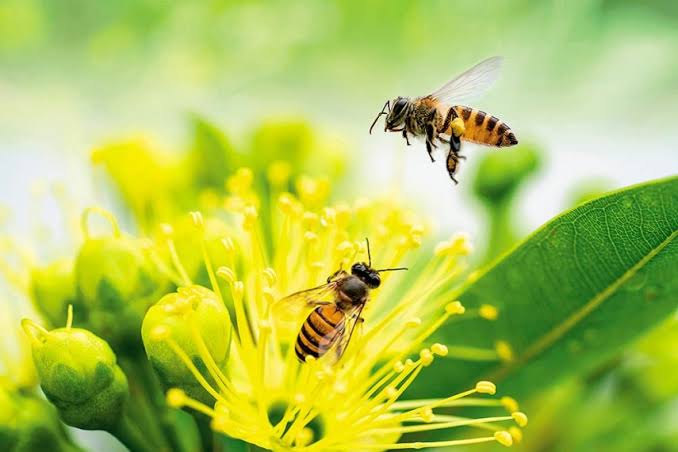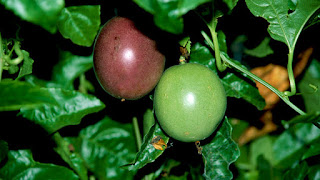The Role of Bees and other pollinators in Increasing Horticultural Production
Everyone knowsabout
the bees, and there are some 20 000 species
of wild bees that pollinate plants but it
may come as a surprise to know that moths,
flies, wasps, beetles and butterflies as well
as some animals pollinate plants. Vertebrate. pollinators include bats, non-flying mammals, including several species of monkey, sunbirds,
honeycreepers and some parrot species.
The abundance and diversity of pollinators
ensures the sustained provision of pollination services to multiple types of plants and leads to better food.
ensures the sustained provision of pollination services to multiple types of plants and leads to better food.
POLLINATORS, INVISIBLE TO THE EYE BUT YIELDING GREAT RETURNS
IN HORTICULTURE
Pollination is the highest Horticulture contributor to yields worldwide,
contributing far beyond any other Horticultural management practice. Thus, bees and other pollinators make important contributions to Horticulture. Pollinators
affect 35 percent of global Horticultural land, supporting the production of 87 of the leading food crops worldwide. Plus, pollination-dependent crops are five
times more valuable than those that do not need pollination. The price tag of
global crops directly relying on pollinators is estimated to be between US$235 and
US$577 billion a year. And their quantity is on the rise. The volume of Horticultural
production dependent on pollinators has increased by 300 percent in the last 50 years. These figures reflect the importance that pollinators have in sustaining
livelihoods across the planet. Several of the crops produced with pollination,
cocoa , Mangoes, Tomatoes, to mention the few examples, provide income for farmers, in particular smallholder Growers and family farms, especially in developing countries.
Pollination is the highest Horticulture contributor to yields worldwide,
contributing far beyond any other Horticultural management practice. Thus, bees and other pollinators make important contributions to Horticulture. Pollinators
affect 35 percent of global Horticultural land, supporting the production of 87 of the leading food crops worldwide. Plus, pollination-dependent crops are five
times more valuable than those that do not need pollination. The price tag of
global crops directly relying on pollinators is estimated to be between US$235 and
US$577 billion a year. And their quantity is on the rise. The volume of Horticultural
production dependent on pollinators has increased by 300 percent in the last 50 years. These figures reflect the importance that pollinators have in sustaining
livelihoods across the planet. Several of the crops produced with pollination,
cocoa , Mangoes, Tomatoes, to mention the few examples, provide income for farmers, in particular smallholder Growers and family farms, especially in developing countries.
Bees can, in a sense, be considered as livestock. With the increasing commercial
value of honey, bees are becoming a growing generator of income, livelihood
strategy and means of food security for many small-scale producers and forest
dwellers in many developing countries.
Clearly, the benefits that bees and other small pollinators bring us go beyond
human food. Thanks to these pollinators, farm animals have diverse forage sources and hence more flexibility to adapt to an increasingly changing climate. And we also have certain medicines, biofuels, fibres and construction materials. Some species also provide materials such as beeswax for candles and musical instruments. So embedded in our lives, bees and other pollinators have long inspired art, music and even sacred passages.
Pollinators are essential to the production of many of the micro- nutrient rich fruits,vegetables, nuts, seeds and oils we eat. In fact, close to 75 percent of the world’s crops producing fruits and seeds for human consumption depend, at least in
part, on pollinators for sustained production, yield and quality. The diversity of food available is largely owed to animal pollinators. But alarmingly, in a number of regions, pollination services are showing declining trends.
In the past, this service was provided by nature at no apparent cost. As farm fields
have become larger, agricultural practices have also changed, focussing on a narrower list of crops and increasing the use of
pesticides. Mounting evidence points to these factors as causes to the potentially serious decline in populations of pollinators. The decline is likely to impact
the production and costs of vitamin-rich crops like fruits and vegetables, leading to increasingly unbalanced diets and health
problems, such as malnutrition and non-communicable diseases.
Maintaining and increasing yields in horticultural crops under agricultural
development is important to health, nutrition, food security and better incomes for smallholder farmers.
The process of securing effective pollinators to ‘service’ agricultural fields is proving difficult to engineer, and there is a renewed interest in helping nature provide pollination services through practices that support wild pollinators.
So as, humans we need to balance these benefits as an integral components if we really need to benefits
By Wandera Alex
Fetcher Youth Green Africa
fetcheragroforestrycentre@gmail.com
+256773545347
Greening Nature and increase Food production
Fetcher Youth Green Africa
fetcheragroforestrycentre@gmail.com
+256773545347
Greening Nature and increase Food production




Comments
Post a Comment